Nation plays key role in climate deal
Updated: 2015-12-07 07:10
By LAN LAN(China Daily)
|
||||||||
China 'will reflect views of developing countries to the developed world'
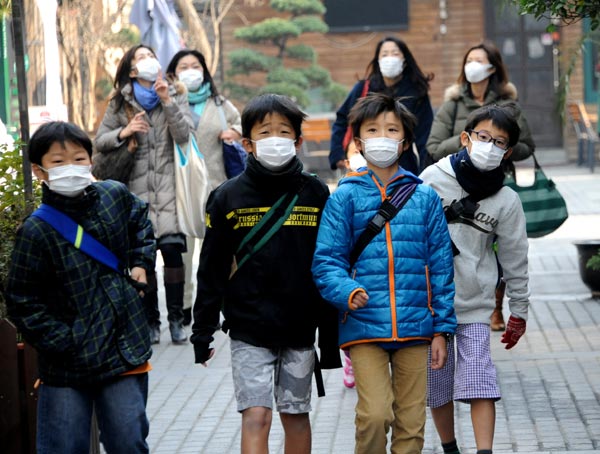 |
|
Pedestrians wear masks during a heavy smog day in Shanghai. [Photo/China Daily] |
China will continue to play a bridging role between developing and developed countries during the ongoing climate talks in Paris, according to the country's top climate negotiator.
This role will enable it to seek so-called landing zones for the thorniest issues under a multilateral approach, the negotiator said.
Delegations from 196 countries agreed on a 48-page draft text in Paris on Saturday-a more succinct version compared with the first one of nearly 100 pages reached early this year in Geneva, Switzerland, according to negotiators.
The two-week climate conference is scheduled to enter a higher level from Monday as ministers start to review sensitive differences and narrow down options for the final draft.
Xie Zhenhua, China's special representative for climate change and head of the Chinese delegation to Paris, said the country is in a position to play a bridging role in reflecting the opinions of developing countries to developed nations as a member of the BASIC (Brazil, South Africa, India and China) countries and the G77 plus China.
The Group of 77 at the United Nations is a loose coalition of developing countries.
Observers said the new draft is a shorter and clearer version, but sticking points remain, including on financing and transparency.
China's chief climate negotiator Su Wei said of the upcoming negotiations: "The toughest work ahead is to prepare a table of French cuisine catering for the tastes of all parties, with the raw ingredients in place.
"It's obvious to all that China has been playing an active and constructive role during the first week of the Paris climate talks, which was rather tough."
A host of joint announcements made by China and countries including the United States, France, Brazil and India said attempts had been made to find "landing zones" to solve major differences in the negotiations.
Xie said: "The Chinese delegation will continue to play a constructive role and try to coordinate with all the parties. We are confident of a successful outcome.
"But I must emphasize that the negotiations should still follow the multilateral principles, and the final goal and a consensus should be reached through an open, transparent and inclusive approach."
The new draft is a package consisting of a legally binding agreement and nonbinding decisions.
Many differences remain over the text. For example, one issue is the five-year time frame for a "stocktaking approach" to assess national commitments to combating climate change.
Jennifer Morgan, global director of the climate program at the World Resources Institute, said the new draft has clearer options and indicates more common ground. "Although there is plenty of hard work ahead, the table is now set for ministers to get this done."
Observers said all the hard decisions have still to be made and they are hoping that negotiators can avoid diluting the text into weaker language.
Li Shuo, senior climate and energy campaigner for Greenpeace East Asia, said the talks have reached a "crunch time" and negotiators should pursue "enhanced ambitions".
- China's 'yes' to new role in climate battle
- Xi's Paris, Africa trips highlight joint efforts in climate battle, promote common development: Chinese FM
- Final draft of Paris climate agreement reached
- USA not doing enough in climate fight
- From Paris to Harare: How Xi creates climate of friendship
- USA not doing enough in climate fight
- Locals have tradition of drying foods during harvest season
- Beijing-Tianjin-Hebei govts to cooperate on emissions control
- Web promotion of prostitution to be targeted
- Two more spells of smog predicted to sweep North China
- Glass bridge in grand canyon of Zhangjiajie under construction
- Road rage cases pose huge safety challenge

 Can Chinese ‘white lightning’ make it in US?
Can Chinese ‘white lightning’ make it in US?
 Gunmen go on a killing spree in Southern California
Gunmen go on a killing spree in Southern California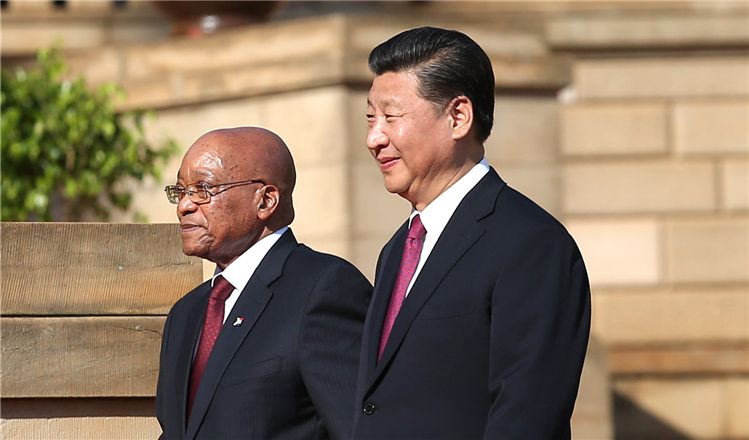
 Chinese, South African presidents hold talks to cement partnership
Chinese, South African presidents hold talks to cement partnership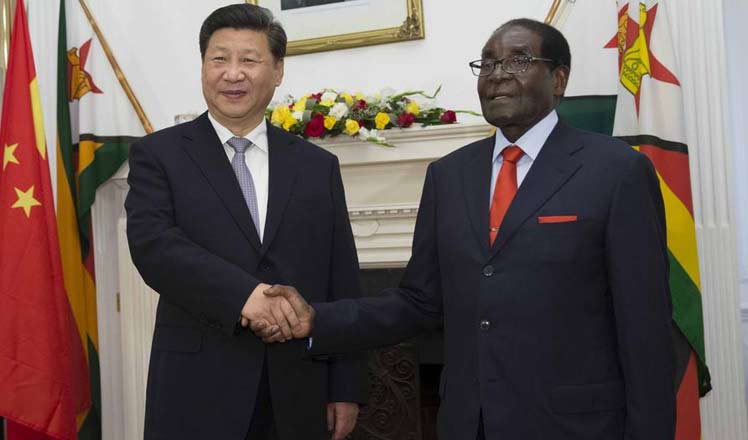
 China, Zimbabwe agree to boost cooperation
China, Zimbabwe agree to boost cooperation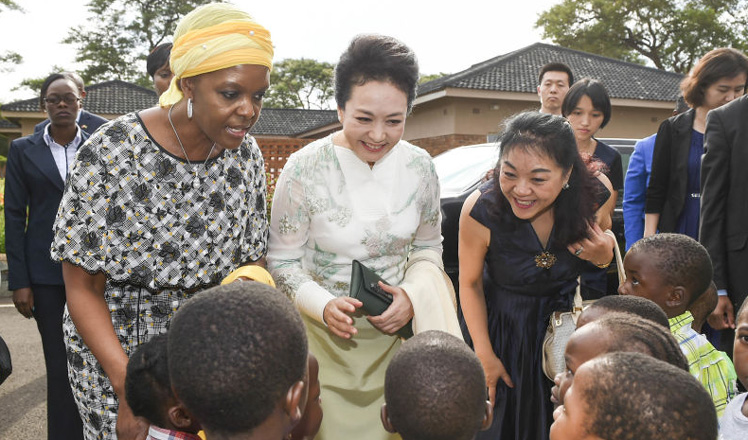
 First lady visits Africa's 'new window' on China
First lady visits Africa's 'new window' on China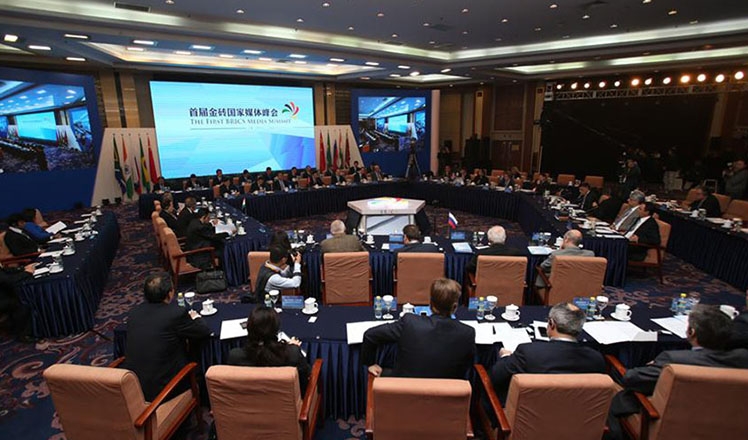
 BRICS media leaders to secure louder global voice
BRICS media leaders to secure louder global voice
 Western science in the eyes of Chinese emperors
Western science in the eyes of Chinese emperors
 Top 10 smartphone vendors with highest shipments in Q3 2015
Top 10 smartphone vendors with highest shipments in Q3 2015
Most Viewed
Editor's Picks

|

|

|

|

|

|
Today's Top News
Shooting rampage at US social services agency leaves 14 dead
Chinese bargain hunters are changing the retail game
Chinese president arrives in Turkey for G20 summit
Islamic State claims responsibility for Paris attacks
Obama, Netanyahu at White House seek to mend US-Israel ties
China, not Canada, is top US trade partner
Tu first Chinese to win Nobel Prize in Medicine
Huntsman says Sino-US relationship needs common goals
US Weekly

|

|







